Craving crunchy freshness in your dish but got no bean sprouts? No sweat.
We’ve all been there, rooting around the fridge, only to find our go-to crunch is MIA.
Let’s face it, sometimes the grocery store runs or garden hauls don’t align with our cooking plans.
But here’s the twist—lacking bean sprouts opens a door to creativity, not a dead-end.
We’re about to dive into five killer substitutes that’ll not only save your dish but possibly make it even better.
Who knew a sprout swap could be a game changer? Get ready to upgrade your cooking game with these easy-peasy swaps.
The 5 Best Substitutes for Bean Sprouts
For many, bean sprouts are a key ingredient in their favorite dishes.
But what do you do when you can’t find them at the store? Luckily, there are several substitutes that can be used in place of bean sprouts.
1 – Soybean Sprouts
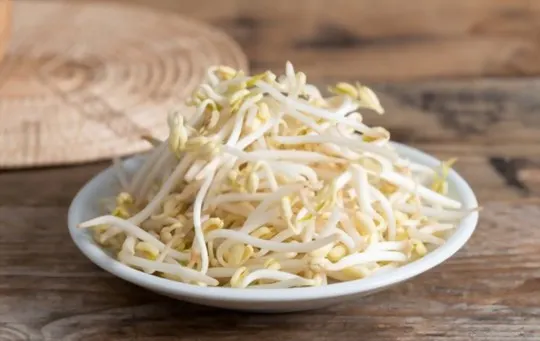
Have you ever had soybean sprouts? They’re a great addition to salads and stir-fries and packed with nutrients.
Soybean sprouts are easy to grow at home – all you need is a jar, some soybeans, and some water.
Just soak the beans in water for 12 hours, drain them and rinse them well.
Place the beans in the jar, cover them with a cloth, and set them aside in a dark place.
Every day, rinse the beans and replace the water.
After a few days, you’ll see small sprouts emerging from the beans.
Once the sprouts are about an inch long, they’re ready to eat.
Give them a try in your next meal – I’m sure you’ll love them as much as I do.
2 – Snow Peas
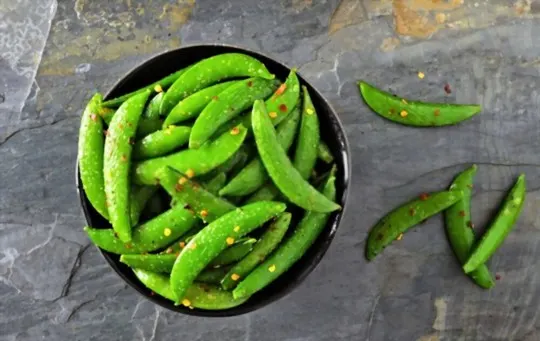
Though their flashy cousins often overshadow them, the humble snow pea is a delicious and versatile vegetable that deserves a spot in every kitchen.
Snow peas are a type of pea harvested before the peas inside the pod have had a chance to mature.
As a result, they are crisp and crunchy, with a delicate flavor that is a perfect complement to sweet and savory dishes.
Snow peas can be enjoyed raw, steamed, sauteed, or stir-fried, making them an ideal addition to any meal.
Plus, they are an excellent source of vitamins A and C, fiber, and iron.
3 – Leafy Greens
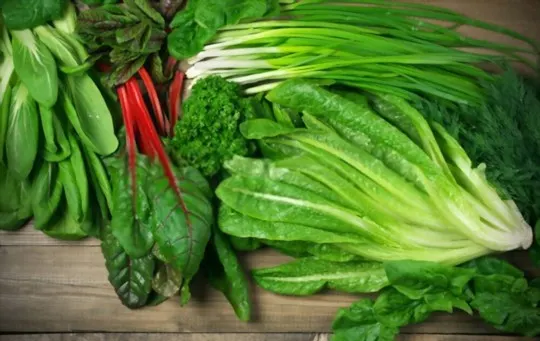
Leafy greens are an essential part of a healthy diet, and there are various varieties to choose from.
Kale, spinach, and Swiss chard are all excellent sources of vitamins and minerals, and they can be easily incorporated into various dishes.
Lettuce is another popular option, and it comes in many different colors and textures.
Whether you’re looking for a crunchy salad or a hearty soup, leafy greens are a versatile and delicious option.
In addition to being nutritious, leafy greens are also low in calories and fat-free, making them an ideal choice for weight loss or maintenance.
If you’re looking for a bean sprout substitute that will add some extra nutrition to your diet, leafy greens are a great option.
They can be used in place of bean sprouts in any dish, providing a boost of vitamins, minerals, and fiber.
4 – Enoki Mushrooms
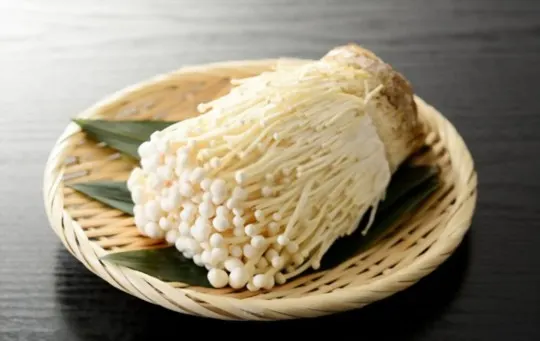
Enoki mushrooms are a type of edible fungi that is native to East Asia.
They have a long, thin shaft and small, delicate caps.
Enoki mushrooms are often used in soups and stir-fries, and their crisp texture and mild flavor make them a popular addition to many dishes.
In recent years, enoki mushrooms have become increasingly popular in the West and are now grown commercially in many countries.
While they can be enjoyed cooked, enoki mushrooms are also often eaten raw, making them a versatile ingredient that can be used in various recipes.
Whether cooked or raw, enoki mushrooms are a delicious way to add flavor and nutrition to your meal.
5 – Mung Beans
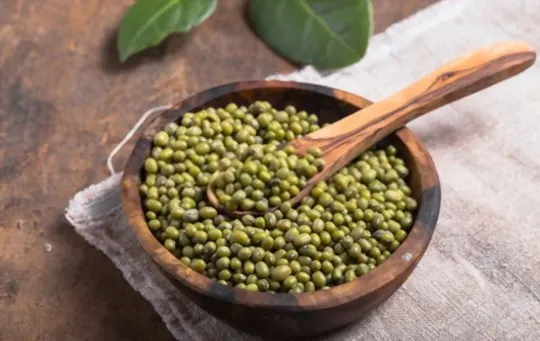
Mung beans are a type of small green bean that is often used in Asian cuisine.
They have a slightly sweet flavor and a firm texture, making them ideal for stir-fries, soups, and salads.
Mung beans are also a good source of protein, vitamins, and minerals, making them a healthy addition to any diet.
In addition to their culinary use, mung beans have also been traditionally used in Chinese medicine.
Mung bean soup is said to help treat digestive disorders, and the beans themselves are believed to have detoxifying properties.
While more research is needed to confirm these claims, there is no doubt that mung beans are a versatile and nutrient-rich food that everyone can enjoy.

Leave a comment